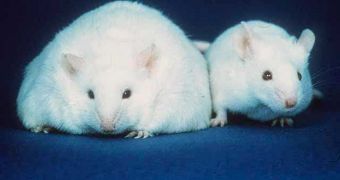According to the conclusions of a new scientific study, it would appear that personality traits can indeed influence a person's weight, either in a positive or a negative manner. The investigation is based on an accurate analysis of more than 50 years of data in this field.
Simple personality traits can be statistically linked to a person's likelihood of going through multiple weight loss/gain cycles, becoming obese or overweight, or remaining lean and fit. The correlations could only be drawn from the vast volume of data the researchers used.
The team, led by National Institute on Aging (NIA) investigator Angelina R. Sutin, PhD, covered the cases of 1,988 people, who are part of a longitudinal study meant to assess how weight and body mass index are influenced by personality.
It was determined for example that people who display high levels of neuroticism and low levels of conscientiousness are far more likely than their peers to go through numerous cycles of weight loss and gain over the years.
On the other hand, people who are impulsive are at a higher risk of becoming overweight or obese. The study determined that those in the top 10 percent on the impulsivity scale were on average about 22 pounds (10-11 kilograms) heavier than those in the bottom 10 percent, PsychCentral reports.
Details of the new research effort were published in the latest online issue of the medical Journal of Personality and Social Psychology. This is one of the first attempts to link these variables together over prolonged periods of time.
“Individuals with this constellation of traits tend to give in to temptation and lack the discipline to stay on track amid difficulties or frustration,” Sutin says of people who are more impulsive than others.
“To maintain a healthy weight, it is typically necessary to have a healthy diet and a sustained program of physical activity, both of which require commitment and restraint. Such control may be difficult for highly impulsive individuals,” she explains.
The majority of people in this study had an average of 16.53 years of education, and were generally healthy. Whites, Blacks, Hispanics and major ethnic groups were represented and the sample was put together from 50 percent males and 50 percent females.
Openness, conscientiousness, extraversion, agreeableness and neuroticism, the five most important personality traits, were found to have the most significant influence on weight in the end.
“The pathway from personality traits to weight gain is complex and probably includes physiological mechanisms, in addition to behavioral ones,” Sutin explains.
“We hope that by more clearly identifying the association between personality and obesity, more tailored treatments will be developed. For example, lifestyle and exercise interventions that are done in a group setting may be more effective for extroverts than for introverts,” she concludes.

 14 DAY TRIAL //
14 DAY TRIAL //